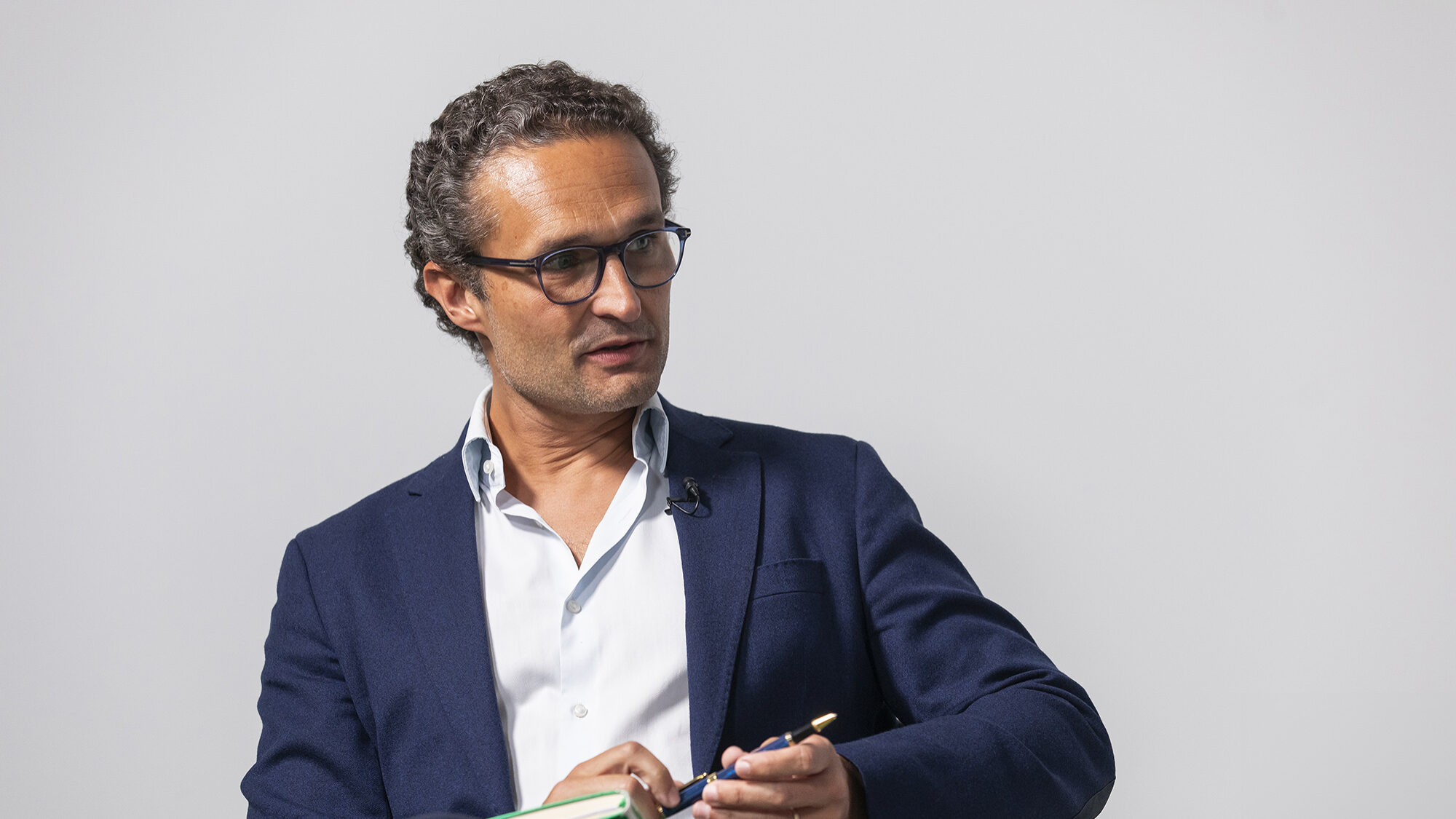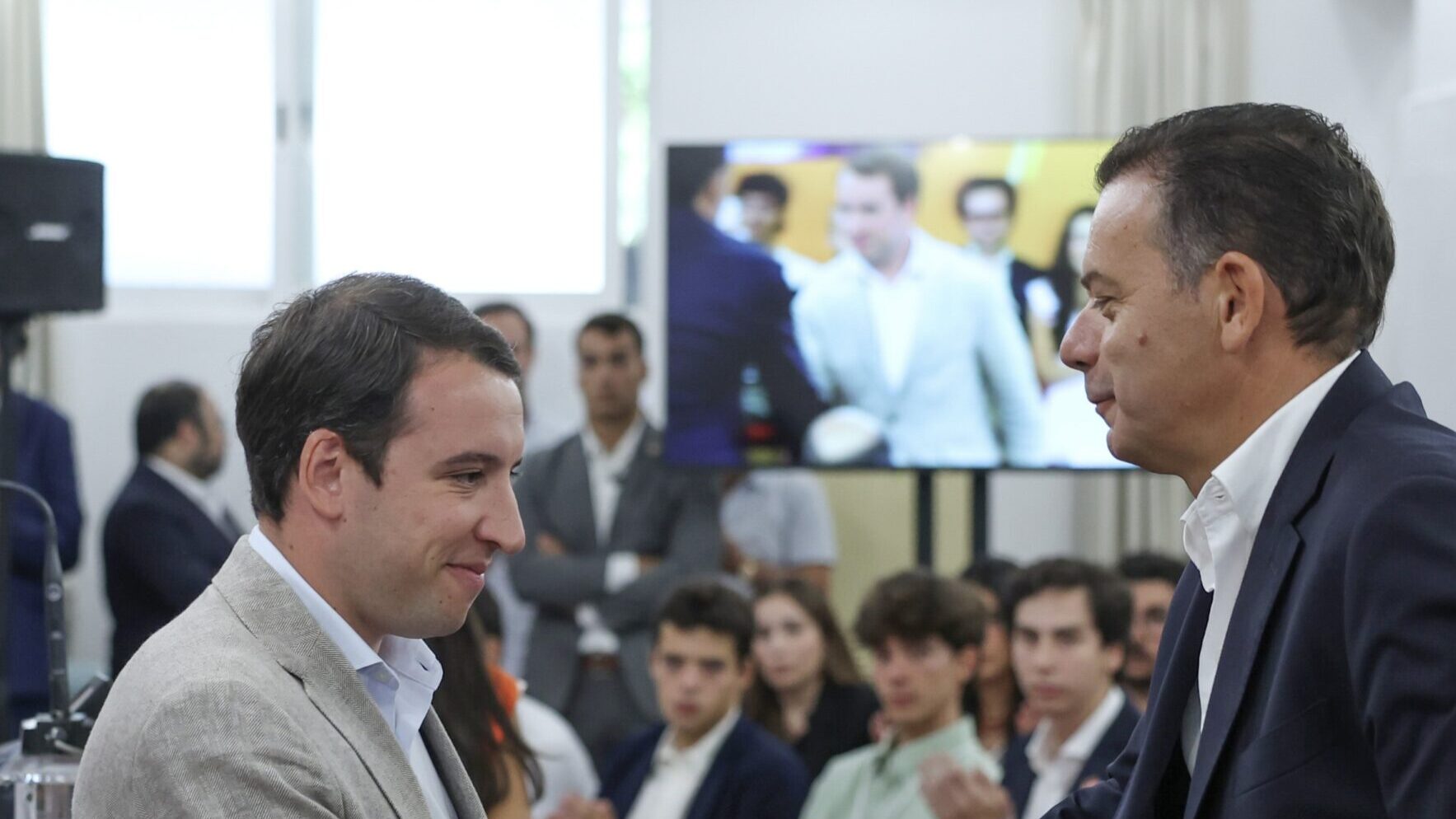“Portugal needs more ambition”, says Siemens CEO
Sofia Tenreiro, CEO of Siemens Portugal, advocates sharing knowledge between micro, SME and large companies to reduce the complexity of the business fabric.
The CEO of Siemens Portugal believes that the country “needs to be more ambitious and stop thinking small” when it comes to businesses. Regardless of their size, organisations must find ways to cooperate in order to grow, invest in people and in four technologies: artificial intelligence (AI), industrial metaverse, digital twins and data.
“We have a complex and diverse business fabric. Often, small companies bring more innovation and large companies generate more immediate value and employability. We must have the courage to help each other and share lessons learned in order to accelerate the smallest and help the largest as well”, said Sofia Tenreiro, speaking to ECO on the sidelines of the Tech Day event, which took place at Nova SBE in Carcavelos.
As part of the celebration of Siemens’ 120th anniversary in Portugal, 12 business associations were contacted to prepare a report on the 12 strategic sectors that drive the country, which concluded that they are as follows: automotive; chemicals and renewable gases; data centres; defence and aerospace; mobility; food and beverages; healthcare; minerals; pharmaceuticals and life sciences; ports; power utilities (energy); and water.
As Sofia Tenreiro explained, it is increasingly necessary to obtain expertise in these areas which, “although not new, are emerging”, not least because it will be the combination of talent and digitalisation that will dictate the success of the various sectors. “We need to look at the people in each of these markets and see if they have the specific skills for what it needs for the future. Not only market knowledge, but also the capacity for innovation. And how will the available technologies (metaverse, digital twin, AI, cybersecurity, etc.) impact this vertical”, argued Sofia Tenreiro, after the analysis was released.
One of the associations that participated in the report was Business Roundtable Portugal (BRP), which goes even further in its warnings: “We have less than a thousand large companies. We are missing many large companies. We have a huge excess of micro-businesses, so we have to accelerate this transformation”, said investor Carlos Moreira da Silva.
The president of BRP said that if the national economy grew as tourism has grown in just a decade, Portugal’s GDP per capita would be between fourth and fifth place in Europe, more precisely between Belgium and Austria. “Without hesitation, we can be faster”, he assured.
Tekever warns of the slowness of public tenders
One of the markets that is growing is defence, as confirmed by Rui Lobo, business development manager at unicorn Tekever: “The defence industry is undergoing a complete revolution. It is usually frowned upon, but its aim is to ensure people’s safety, without which everything else is irrelevant. Our biggest challenge is to keep our allies in Ukraine on the front line.”
However, some external ‘hesitations’ still persist. Tekever’s spokesperson warned about the timing of public tenders, namely how to reconcile the speed of innovation in wartime with “more lengthy public processes”. “And there is still the risk that someone will go to court because they felt mistreated, and in the meantime, two or three years have passed. We bring innovation every two weeks”, emphasised Rui Lobo.
State-owned companies, on the other hand, are also faced with the need to renew their infrastructure. For example, EPAL – Empresa Portuguesa de Águas Livres has a contract with Siemens with the aim of reducing energy consumption by between 2% and 5%. The project, which covers a third of the national territory, began two years ago and involves implementing technology in modern assets and others built in the 1980s.
On stage, Siemens representatives also presented other technologies, such as the autonomous bionic agent, which is a cloud-based solution that processes, interprets, and assists in resolving customer requests, such as purchase order status queries. The system completes some tasks in less than a minute and is integrated with programmes such as Salesforce, SAP, Snowflake, ServiceNow, and Workday.




